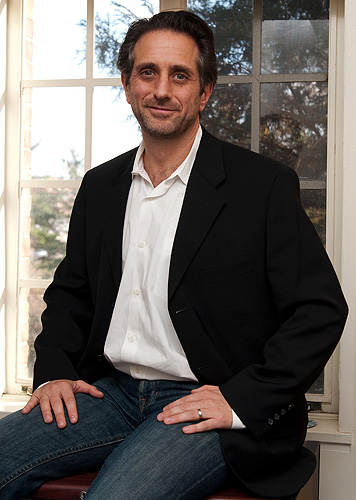
Why is it good to be good?
It’s a question that occurs throughout life, when people see others gain riches, fame, and fortune despite bad behavior.
Just as the moral person wonders whether life is fair, the immoral person thinks that the moral person is deceiving himself (“What a fool!”).
Those are among the problems that concern a philosopher in the College of Liberal Arts and Sciences who is writing a book about goodness.
There are rewards for goodness, says Paul Bloomfield, a professor of philosophy and author of the upcoming book, A Theory of the Good Life.
When you are moral, you respect yourself in a way that the immoral person cannot. Your values change to reflect what is truly important in life, he says.
By appreciating what is good and devoting attention to it, a person is generally happier, more able to love and be loved, and more mature, he adds. One gains wisdom and can work toward meaningful goals.
The word “philosophy” comes from the words for love and wisdom, he notes: “Becoming moral is supposed to be about the process of becoming wise.”
Immoral people, on the other hand, disrespect themselves whether they realize it or not, he says. When they harm others, they disrespect human beings. Since they are also human, they disrespect themselves, Bloomfield argues.
Even if they don’t realize this or don’t get caught, they cannot really appreciate the good or enjoy love. Bloomfield likens their situation to that of the murderous character who appears to commit the perfect crime in the Woody Allen film, Crimes and Misdemeanors.
“The superficially beautiful life he leads is corrupt at the bottom, even if he can’t see it,” Bloomfield says. Crime, in other words, doesn’t pay, even if it appears to succeed.
Winning fair and square rather than “winning” by cheating is always going to be more satisfying, he believes.
“I guess I think most people are morally decent,” Bloomfield says.
“Everybody does small bad things occasionally,” he adds. The problem comes if small bad things become a habit and add up. Or if a person thinks that an accumulation of small good things does not matter.
Nobody can lead a perfectly happy life; tragedies occur, even to good people, he says. But in the face of misfortune, people will be as happy as they can be if they are as virtuous as they can be, he argues.
Bloomfield was driven to write the book after a critic questioned his assumptions in the preface to an earlier book, Moral Reality (Oxford University Press, 2001). That book explored whether morality is relative, a product of culture, or whether there are facts about morality that are true for all human beings.
In the preface, he set out assumptions that it is good to be good, courageous, and self-disciplined. When a critic argued that he couldn’t make such assumptions, Bloomfield wanted to elaborate on why goodness matters.
“I had very strong thoughts about this,” he says.
Central to his thinking were the ideas of self-respect and disrespect, which he had thought about since he was a child.
“I was a philosophical kid – interested in philosophy before I knew what it was,” he says. “I grew up in a family where we did not argue to win but to figure out the truth.”
Bloomfield grew up in West Hartford and earned his BA at Tufts and Ph.D. at Syracuse University. He spent three years as a visiting assistant professor at the University of Arizona (Tucson) and two years as a visitor at McGill University in Montreal before coming to UConn in 2000.
He also edited Morality and Self Interest (Oxford University Press, 2007) and has taught graduate seminars on the subject.
To hear a podcast of Bloomfield talking about his new book, go to the College of Liberal Arts and Sciences website.


